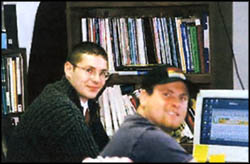| Activity Thinking about the reasons why people volunteer, take a look at your own agency and consider the following questions. If more than one person per agency is participating in the workshop, discuss the questions as a group.
Remember, a volunteer program is a two-way street: it must meet the needs of the organization and the needs of the volunteer. Types of Volunteers Episodic Volunteers Trends show that more people are willing to volunteer for short time periods. Examples of episodic volunteers are snowbirds and university students who are available only at certain times of year. These volunteers often want a time-specific task. Can you accommodate such a person? Designer Volunteers More people want volunteer experiences that will benefit them. They have a defined type of experience and defined time they are available. Often, they are trying to gain experience or a new skill set that will help them in their career. Usually this is a short time commitment as opposed to a long term one. How can you use this type of volunteer so that you both benefit?
Youth volunteers Today, there are more volunteers between the ages of 15-24 years. Sometimes, an adult literacy learner doesn't want a tutor younger than him or herself. If tutoring isn't an option, what could this young and energetic group do for you? Can you tap into the high school students and the new community involvement diploma requirement? Seniors The senior population is increasing. Some people have taken early retirement options and have highly developed skill levels. Retired teachers are one obvious source of volunteer tutors, but there are a lot of other retirees out there too. How can you tap into this resource? |
| Previous | Table of Contents | Next |
